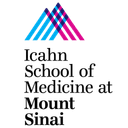Explore healthcare information technology systems, from electronic health records to digital medicine, and learn to navigate modern healthcare IT challenges.
Explore healthcare information technology systems, from electronic health records to digital medicine, and learn to navigate modern healthcare IT challenges.
This comprehensive course examines the critical role of information technology in modern healthcare delivery. Students explore the challenges and opportunities in implementing healthcare IT systems, focusing on electronic medical records, patient self-service technologies, and digital medicine innovations. The curriculum covers regulatory frameworks, patient perspectives, and practical applications in various healthcare settings. Through expert interviews and case studies, learners gain insights into healthcare IT's impact on quality assurance, cost management, and patient care effectiveness.
4.6
(483 ratings)
20,718 already enrolled
Instructors:
English
What you'll learn
Learn the challenges of implementing technology in healthcare settings
Understand how IT reshapes information balance in healthcare delivery
Explore electronic health records and their impact on patient care
Master the concepts of digital medicine and mobile health applications
Study telehealth systems and their role in modern healthcare
Analyze healthcare data analytics and quality assurance methods
Skills you'll gain
This course includes:
516 Minutes PreRecorded video
5 assignments
Access on Mobile, Tablet, Desktop
FullTime access
Shareable certificate
Closed caption
Get a Completion Certificate
Share your certificate with prospective employers and your professional network on LinkedIn.
Created by
Provided by

Top companies offer this course to their employees
Top companies provide this course to enhance their employees' skills, ensuring they excel in handling complex projects and drive organizational success.





There are 23 modules in this course
This comprehensive course explores the intersection of healthcare and information technology, examining the challenges and opportunities in modern healthcare IT systems. The curriculum covers essential topics including electronic medical records, patient self-service technologies, digital medicine, and telehealth solutions. Students learn about regulatory frameworks, system implementation challenges, and the impact of technology on patient care. The course emphasizes practical applications across various healthcare settings, from emergency departments to outpatient clinics, while addressing key concerns in data analytics, privacy, and system integration.
Where are we today and how did we get here?
Module 1 · 5 Minutes to complete
Healthcare IT Today
Module 2 · 35 Minutes to complete
IT Implementation Basics
Module 3 · 7 Minutes to complete
Healthcare IT Challenges
Module 4 · 5 Minutes to complete
Current Healthcare IT Trends
Module 5 · 38 Minutes to complete
Understanding Patient Perspectives
Module 6 · 16 Minutes to complete
Patient Self-Service Technology
Module 7 · 13 Minutes to complete
Personal Health Records Evolution
Module 8 · 38 Minutes to complete
Inside Healthcare Technology
Module 9 · 44 Minutes to complete
Clinical Office Technology
Module 10 · 20 Minutes to complete
Emergency Department Systems
Module 11 · 22 Minutes to complete
Hospital Technology Systems
Module 12 · 44 Minutes to complete
Digital Medicine Implementation
Module 13 · 57 Minutes to complete
Digital Medicine Complexities
Module 14 · 7 Minutes to complete
Mobile Health Innovations
Module 15 · 1 Hours to complete
Telehealth Solutions
Module 16 · 18 Minutes to complete
Healthcare Data Analytics
Module 17 · 51 Minutes to complete
EMR Evolution
Module 18 · 21 Minutes to complete
EMR Functionality
Module 19 · 26 Minutes to complete
Healthcare IT Leadership
Module 20 · 31 Minutes to complete
Health IT History
Module 21 · 26 Minutes to complete
Beyond EMR Systems
Module 22 · 17 Minutes to complete
Prescription Management
Module 23 · 43 Minutes to complete
Fee Structure
Payment options
Financial Aid
Instructors
Senior Vice President, MSHS IT | Associate Professor of Cardiology & Population Health Science and Policy Icahn School of Medicine at Mount Sinai
Dr. Bruce J. Darrow is an Associate Professor of Medicine/Cardiology, Vice President of Information Technology, and Chief Medical Information Officer for the Mount Sinai Health System. He graduated summa cum laude from Yale University and earned his doctorates from Washington University in St. Louis. As an academic physician, Dr. Darrow has received numerous awards for his teaching and medical education excellence. He has been recognized for combining clinical skills with compassionate care, earning accolades such as the Dr. Joseph N. Muschel Housestaff Award during his residency. In 2012, he won the Attending Physician of the Year Award from Mount Sinai Hospital’s Department of Nursing, and in 2009, he completed a Clinical Quality Fellowship. His leadership in health information technology led to Mount Sinai receiving the HIMSS Davies Enterprise Award for excellence in health IT. Dr. Darrow is board-certified in Cardiovascular Disease, General Internal Medicine, and Clinical Informatics. He is a fellow of the American College of Cardiology and a member of the American Heart Association.
Associate Professor | Emergency Medicine Associate Professor | Genetics and Genomic Sciences Icahn School of Medicine at Mount Sinai
Dr. Nicholas G. Genes is an Associate Professor in the Department of Emergency Medicine at the Icahn School of Medicine at Mount Sinai. He earned his MD and PhD from the University of Massachusetts Medical School and completed his Emergency Medicine residency and informatics fellowship at Mount Sinai. Dr. Genes has made significant contributions to health informatics, particularly in clinical decision support and emergency department operations. During his residency, he developed an online adjunct to the program’s journal club, which integrated evidence-based medicine tools into clinical practice.
Testimonials
Testimonials and success stories are a testament to the quality of this program and its impact on your career and learning journey. Be the first to help others make an informed decision by sharing your review of the course.
Frequently asked questions
Below are some of the most commonly asked questions about this course. We aim to provide clear and concise answers to help you better understand the course content, structure, and any other relevant information. If you have any additional questions or if your question is not listed here, please don't hesitate to reach out to our support team for further assistance.

-1734795730559.png&w=3840&q=75)


-1734795730559.png&w=256&q=75)
